Every so often, I watch a film that gets me wondering. Might it be that the conventions of suspense and anticipation are a waste of time? So, for example, we would know from the start that Bruce Willis’ child psychologist in The Sixth Sense is a ghost, that Tyler Durden and the unnamed narrator of Fight Club are one and the same person, that there is little to be gained by ever watching another Adam Sandler film…oh, sorry, everyone knows that already.
But seriously. The first five minutes of Arabani, written and directed by Adi Adwan, reveal the crucial signposts that underpin the film. A picturesque village set amidst the rolling landscape of the Golan. A middle aged man stops his car and pauses before driving in, a mixture of anticipation and apprehension. Two teenagers in the back seat; a surly lad (tautology, I know) and a slightly older girl. She’s wearing a vest with spaghetti-thin straps, the style favoured by young women of this age and place. The man, paternally, wraps a shawl round her shoulders; to ward off the chill or disapproving stares? They drive on, reach a house, park. He motions for them to wait, approaches the front door, knocks. An elderly woman comes the door, dressed in the chiaroscuro shades of the Druze, black gown and white shawl. She stares at the visitor, raises her hand, strikes him sharply across the face. It stings, but he’s not surprised. He had it coming, one imagines.
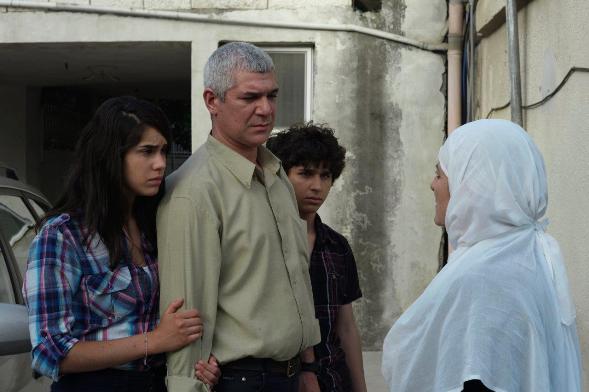
For all this signposting, Arabani is not a bad film. Obvious, from the start, but not at all clichéd. Tensions between the tribes are fertile material for Israeli filmmakers; given the Israeli way, most either propose some sort of resolution based around mutual acceptance (golly, why didn’t I ever think of that before?) or predict post-apocalyptic doom. Arabani, to its credit, does neither.
Yosef (Eyad Sheety) is a Druze, who left his village and family and friends after army service to make his way in the big bad metropolis. (Mitzpe Ramon actually, but given its social and geographical remove from Golan, it might as well be a bustling metropolis.) He marries a Jew, has two children, gets on with the business of building a new life. It doesn’t work; the marriage fails, and he returns to the ancestral home and wrathful mother to start off again 17 years later, teenage kids in tow.
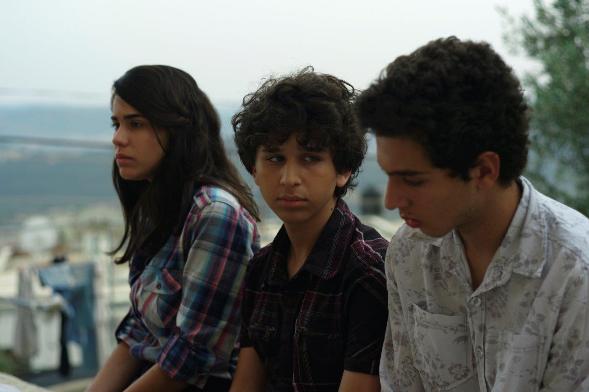
Is it likely that the two kids would have no connection at all with their Druze side, and if so why? I’m not sure I know the answer to either question, but Arabani presents this scenario plausibly enough. Eli, the boy (Tom Kelrich), is uncouth, ill-mannered and confused. The last might have dictated the first two, but it doesn’t make him any pleasanter. Smadar, the girl (Daniella Niddam), is just as confused, but at least makes the effort of getting along with things, especially grandmother Afifa (Zuhaira Sabbagh). They lack a common language, but share a common empathetic sensibility. When she meets Samer (Shadi Mar’i) a shy local boy, she has at least someone she can talk to. And, as they discover, they have things to talk to each other about…
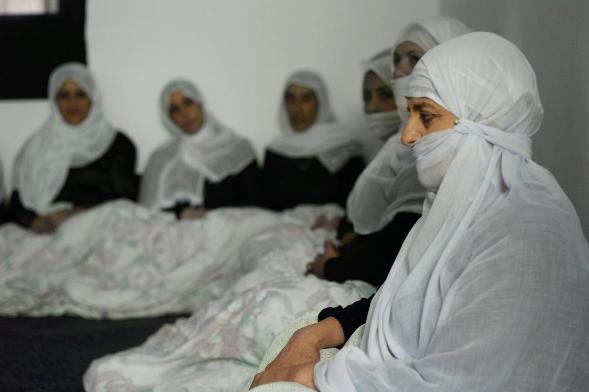
If only this were enough for everyone. The Druze are a close-knit – some may say conservative – minority amidst Israeli’s kaleidoscope of ethnicity and faith. Marrying “out” is frowned upon, the offspring of these relationships not considered as true Druze. Yosef caused his family no end of grief by leaving the community and marrying a Jew, and will cause more by returning with two children in tow. We never learn what led to marital breakdown (although Yosef’s mobile phone ringtone when his ex-wife calls to speak with the children – the theme from The Exorcist – gives a hint), but one gathers that bringing the children back was the option of last resort. Poor them.
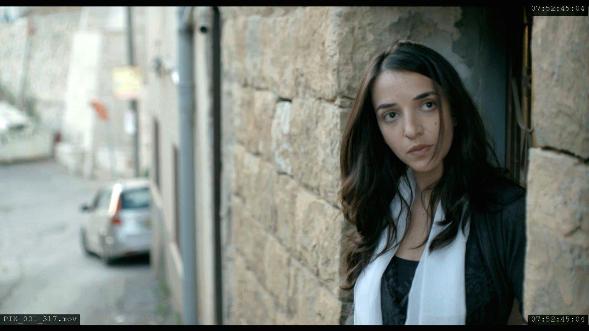
But Yosef creates new problems of his own. Sami (Mahmud Abu-Jazi) was his best mate back in the day. He’s now married to Yusra (Lucy Aharish). But Yosed and Yusra have history, and his return is merely the prelude for tension on several fronts. (An aside: Aharish, an excellent actress, is too often typecast in the passive-but-smouldering Arab woman mould. Can we have someone give her a role with real meat on its bones, please?)
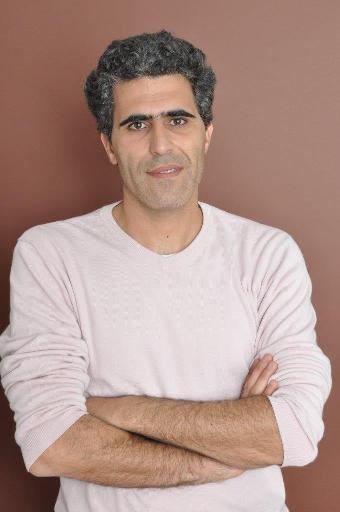
Arabani’s strength lies in its modesty. Adwan avoids the crowd-pleasing insincerity of bold declarative statements, rather allowing the film to speak for itself. This is the way it is, one gathers. Make of it what you will. The confused interpersonal relationships complement the central thesis of Arabani reasonably well. There is a claustrophobic intensity that at times threatens to overwhelm the film; all this, and in such a short time span? But then, it is another world, the hermetic apartness serving to intensify. Ultimately, Arabani is a useful reminder that the journey matters as much as the destination. We know where the film is headed pretty much from the start, but the path it takes remains interesting nonetheless.
Arabani (2013)
Written and Directed by Adi Adwan
Starring Eyad Sheety, Daniella Niddam, Tom Kelrich, Zuhaira Sabbagh, Lucy Aharish
82 minutes, Hebrew and Arabic with Hebrew and English subtitles





